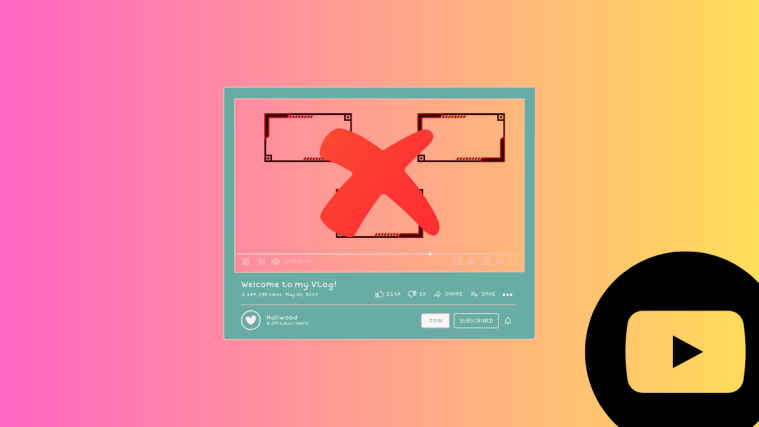As security concerns mount with regard to data breaching in Chinese apps, the world is looking for alternatives. But do we even know which apps are based out of China? To help you out, here is a list of the top Chinese social media apps.
Depending on where you live, some of these apps may or may not be available on the Google Play Store. You might be surprised to find some pretty big names on the list too.
TikTok/Douyin
This app needs no introduction. Douyin which got globally recognized as ‘TikTok’ is a short video sharing app from the Chinese company ByteDance. The app lets users create short videos and upload them. TikTok has a huge userbase of over 800 million users, and is often used as a platform for companies to advertise their products through endorsements.
The app followed a similar system of ‘likes’ and ‘followers’ like most of its other social media competitors.
Related: How to get Chinese TikTok on iOS and Android
This app needs a category of its own. Termed a ‘Super App’, WeChat is a fully functional messaging app that is almost like a virtual assistant. Everything from games to shopping, news, can all be accessed right within the app.
Like Whatsapp, WeChat has two types of accounts; a personal one and a business one. With over 1 billion active users, WeChat is one of the biggest social media platforms in China.
QQ is developed by Tencent, one of the biggest multinational companies in China. QQ is an instant messaging app, much along the lines of WeChat. You can access games, news, shopping, and of course communication, without ever leaving the app.
Like Whatsapp, QQ has a desktop version of the app, however, it is not linked to your phone number. So you do not need a phone number to create an account. QQ is most commonly used for corporate communication owing to the fact that it is accessible cross-platform.
Sina Weibo
Also known as the ‘Twitter of China’ Weibo is a microblogging app that connects everyone from musicians to politicians to everyday joes. With a userbase of over 500 million, the app is often used as a social marketing platform. Sina Weibo is also one of the biggest social media apps in China.
Like Twitter, Weibo also had a character limit on posts. However, in 2016, the app completely dropped its140 character limit.
Zhihu
Zhihu is the Chinese version of Quora, but also much much more. In essence, the app is a virtual quorum with users asking questions and other users replying. However, it also has a host of other features like ‘tipping’, voice notes, essays, and more.
Zhihu has a huge online community that is always active. Because of its tipping system, the app is usually a good resource to find quality content since people try to provide the best answer possible.
Kwai
Kwai is a photo and video sharing app along the lines of Instagram. It even has an option to go live to interact with your followers. What started as a small social media app aimed at rural China soon rose to be one of the biggest video sharing apps.
Momo
Momo is one of the biggest online dating apps in China. While similar to Tinder, the app is also used for instant messaging. Momo also has a function to go live to help better connect with people around you.
The app matches people up using geolocation as well as likes and dislikes.
PengYou
Another app from Tencent, PengYou is a social media app that lets you share posts, images, and more in much the same way as Facebook. While primarily built for social interactions, PengYou is now also used by corporations to market their products.
Little Red Book
This unique app is a cross between reviewers and sellers. Little Red Book provides a sellers interface that encourages its users to try out different products and then review them for others. The app has a wide catalog covering mainly beauty and cosmetics but also food, nutrition, and even small appliances.
Since it is based on customer reviews, it is the go-to app to find out the legitimacy of a product.
Helo
Helo is another social media app with a huge user base. The app is built along the lines of Instagram and has users uploading photos and videos to their profile. Like other social media apps, users can follow their favorite creators, and like their work.
Helo also puts emphasis on instant messaging, which is a big part of its app.
Likee
Likee is very similar to TikTok in that it is a video sharing social media app. The app allows you to browse through short videos without even creating an account. However, if you would like to start creating your own content you will have to sign up.
Likee has a huge userbase, mainly in southeast Asia. Like TikTok, the app has a bunch of video editing options built-in. Users generate a follower base by engaging people with short videos
LiveMe
As the name suggests, LiveMe is a live video streaming app. The app lets users go live and interact with their followers. Followers can message the creators that are live and ask them questions, etc.
The app is aimed at complete social sharing from a personal point of view. LiveMe videos are usually just users doing everyday things and having someone to chat with.
Is Instagram or Snapchat a Chinese App?
Instagram and Snapchat are currently the biggest social media apps in the world along with Facebook. While Facebook actually now owns Instagram, Snapchat is under the company Snap Inc.
Both, Facebook and Snap Inc are American companies headquartered in the U.S. In fact, both these apps are banned in China since the Chinese government does not allow foreign apps on its App stores.
Why Should You Not Use a Chinese App Like Tiktok?
A number of Chinese apps are currently under scrutiny for compromising the security, privacy, and integrity of their users. While countries debate whether they should be banned or not, India, which has TikTok’s largest userbase has already gone ahead and banned the app.
The U.S government is also currently in talks about banning certain Chinese apps. Check out the article below to learn more about these security concerns.
While there is no clarity on which apps are dangerous or compromised, it’s best to be cautious. What are your thoughts on the matter? Let us know in the comment below.
Related:














